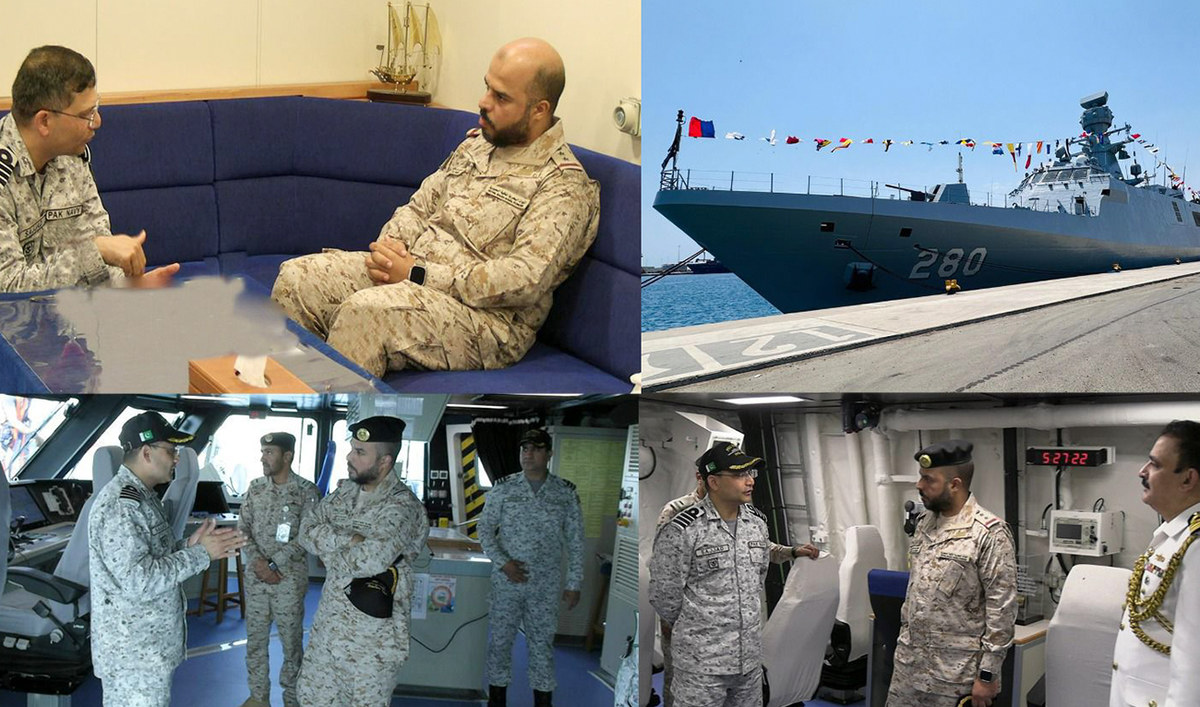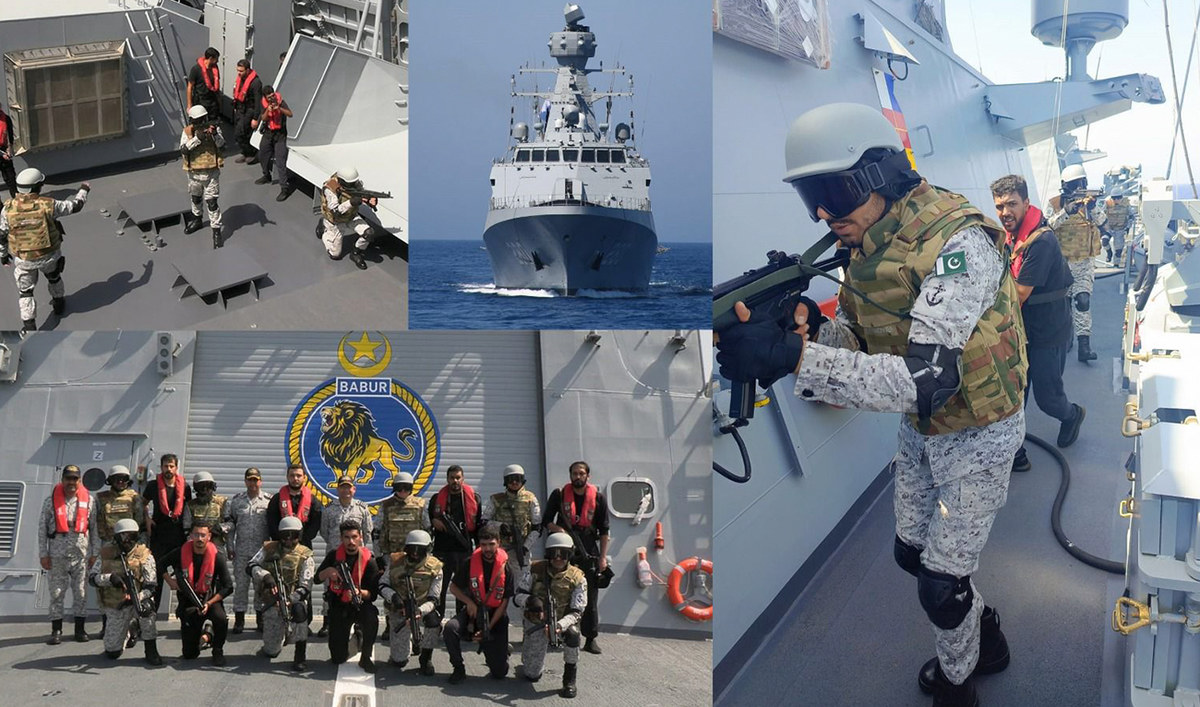ISLAMABAD: Pakistan Navy Ship (PNS) Babur has visited the Jeddah port and conducted a joint exercise with ║┌┴Ž╔ńŪ°ŌĆÖs Al-Riyadh frigate to strengthen mutual cooperation between the two countries, the Pakistani military said on Wednesday.
Upon arrival at the Jeddah port, the Pakistani naval ship was received by Pakistani diplomats and officials of the Royal Saudi Navy, according to the Inter-Services Public Relations (ISPR), the Pakistani militaryŌĆÖs media wing.
On the occasion, the commanding officer of PNS Babur met with Deputy Western Fleet Commander, Rear Admiral Yahya Mohammad Majrashi, of the Royal Saudi Navy.
ŌĆ£During the meeting, issues of mutual interest, including maritime cooperation between the two countries, were discussed,ŌĆØ the ISPR said in a statement.

In this handout combination of photographs, taken and released by Director General Public Relations Pakistan Navy on June 19, 2024, Pakistan navy officials brief Royal Saudi Naval Forces personnel onboard PNS Babur in Jeddah. (Pakistan Navy)
ŌĆ£At the end of the visit, PNS Babur participated in a naval exercise with Royal Saudi Naval Forces ship, HMS Al-Riyadh.ŌĆØ
The ISPR said the passage exercise, named PASSEX, was aimed at promoting mutual cooperation and strong friendly relations between the two countries.
Pakistan and ║┌┴Ž╔ńŪ° enjoy strong defense ties and bilateral security cooperation. The two nations regularly engage in joint air, ground, and sea military exercises, while several cadets from the Kingdom, along with counterparts from other Middle Eastern nations, annually visit Pakistan to undergo specialized military training.
Apart from defense and security ties, Pakistan enjoys strong economic and trade relations with ║┌┴Ž╔ńŪ°. The Kingdom is home to over 2.7 million Pakistani expatriates, serving as the top source of remittances for the cash-strapped South Asian country.

In this handout combination of photographs, taken and released by Director General Public Relations Pakistan Navy on June 19, 2024, Pakistan naval ship Babur conducts passage exercise with Royal Saudi Naval Forces in Jeddah. (Pakistan Navy)
╠²










